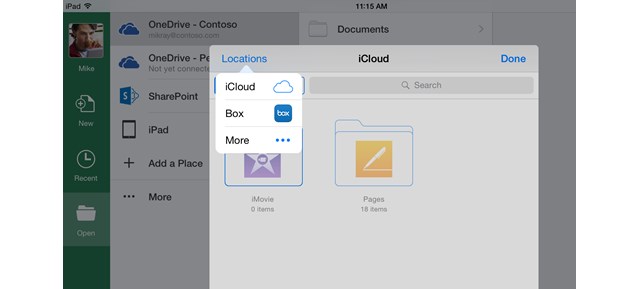
Microsoft reveals Office web and mobile apps can use ANY cloud storage service
Microsoft's mobile-first, cloud-first strategy continues. In something of a surprise announcement the company reveals that it is launching a new cloud storage partner program meaning that any cloud storage provider will be able to integrate with Office for iOS and Office Online.
The news follows on from Microsoft's partnership with Dropbox in November and while it is just iOS users who will benefit from the new mobile options for now, Office for Android and Office for Windows 10 will also get the same treatment in due course. It's a recognition of the fact that integration with OneDrive is not enough so it shouldn't be long before we see iCloud and Google Drive working with Office.












